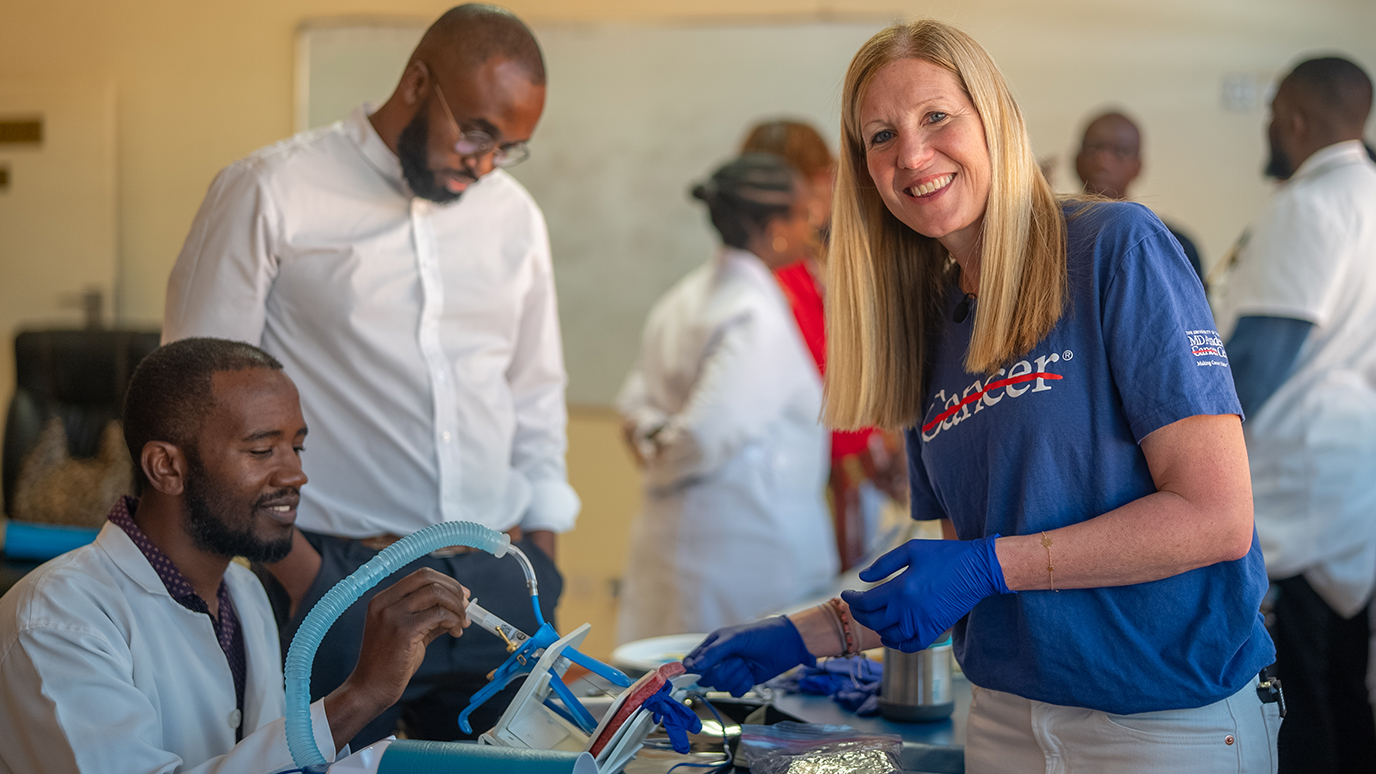- Diseases
- Acoustic Neuroma (16)
- Adrenal Gland Tumor (24)
- Anal Cancer (70)
- Anemia (2)
- Appendix Cancer (18)
- Bile Duct Cancer (26)
- Bladder Cancer (74)
- Brain Metastases (28)
- Brain Tumor (234)
- Breast Cancer (728)
- Breast Implant-Associated Anaplastic Large Cell Lymphoma (2)
- Cancer of Unknown Primary (4)
- Carcinoid Tumor (8)
- Cervical Cancer (164)
- Colon Cancer (168)
- Colorectal Cancer (118)
- Endocrine Tumor (4)
- Esophageal Cancer (44)
- Eye Cancer (36)
- Fallopian Tube Cancer (8)
- Germ Cell Tumor (4)
- Gestational Trophoblastic Disease (2)
- Head and Neck Cancer (14)
- Kidney Cancer (130)
- Leukemia (342)
- Liver Cancer (50)
- Lung Cancer (286)
- Lymphoma (278)
- Mesothelioma (14)
- Metastasis (30)
- Multiple Myeloma (100)
- Myelodysplastic Syndrome (60)
- Myeloproliferative Neoplasm (6)
- Neuroendocrine Tumors (16)
- Oral Cancer (102)
- Ovarian Cancer (178)
- Pancreatic Cancer (162)
- Parathyroid Disease (2)
- Penile Cancer (14)
- Pituitary Tumor (6)
- Prostate Cancer (150)
- Rectal Cancer (58)
- Renal Medullary Carcinoma (6)
- Salivary Gland Cancer (14)
- Sarcoma (238)
- Skin Cancer (302)
- Skull Base Tumors (56)
- Spinal Tumor (12)
- Stomach Cancer (66)
- Testicular Cancer (28)
- Throat Cancer (92)
- Thymoma (6)
- Thyroid Cancer (100)
- Tonsil Cancer (30)
- Uterine Cancer (86)
- Vaginal Cancer (18)
- Vulvar Cancer (22)
- Cancer Topic
- Adolescent and Young Adult Cancer Issues (22)
- Advance Care Planning (12)
- Biostatistics (2)
- Blood Donation (18)
- Bone Health (8)
- COVID-19 (360)
- Cancer Recurrence (120)
- Childhood Cancer Issues (120)
- Clinical Trials (628)
- Complementary Integrative Medicine (22)
- Cytogenetics (2)
- DNA Methylation (4)
- Diagnosis (240)
- Epigenetics (6)
- Fertility (62)
- Follow-up Guidelines (2)
- Health Disparities (14)
- Hereditary Cancer Syndromes (128)
- Immunology (18)
- Li-Fraumeni Syndrome (8)
- Mental Health (122)
- Molecular Diagnostics (8)
- Pain Management (62)
- Palliative Care (8)
- Pathology (10)
- Physical Therapy (18)
- Pregnancy (18)
- Prevention (940)
- Research (390)
- Second Opinion (78)
- Sexuality (16)
- Side Effects (616)
- Sleep Disorders (10)
- Stem Cell Transplantation Cellular Therapy (216)
- Support (408)
- Survivorship (330)
- Symptoms (182)
- Treatment (1794)
Arizona Welcomes Banner MD Anderson Cancer Center
BY MD Anderson
2 minute read | Published June 23, 2011
Medically Reviewed | Last reviewed by an MD Anderson Cancer Center medical professional on June 23, 2011
In MD Anderson's quest to eliminate cancer in Texas, the nation and the world, creating relationships beyond 1515 Holcombe that extend the reach of its research-driven patient care becomes crucial. Next stop: Arizona.
Banner MD Anderson Cancer Center opens its doors in Gilbert, Ariz., a suburb of Phoenix, on Sept. 26, and will deliver an unprecedented level of cancer care to residents in Arizona and the southwest. The center is a collaboration between MD Anderson and Banner Health, Arizona's leading nonprofit health care system.
This will be MD Anderson's first full clinical extension outside of Greater Houston. The center will support the multi-disciplinary care approach pioneered at the institution, which includes individual areas for specific cancer.
"We have a strong connectivity with Banner, and they have fully embraced, and adopted, the MD Anderson approach to cancer care," says Amy Hay, associate vice president, Global Business Development for MD Anderson's Center for Global Oncology. "This is a true collaboration. While MD Anderson will have clinical oversight, we'll recruit faculty together, work as a team on care and connect frequently between Gilbert and Houston."
What also makes the relationship particularly unique is the extension of MD Anderson's clinical research. Research leadership at both institutions has developed a stepped-phase plan for the center that will provide a seamless environment for cancer patients to access clinical trials. Research conducted there will closely integrate with the clinical care program and expand as patient volumes grow. Basic and translational research will also be developed over time so that physicians and scientists can bring the latest insights and developments to their patients in Arizona.
Related Cancerwise Stories






